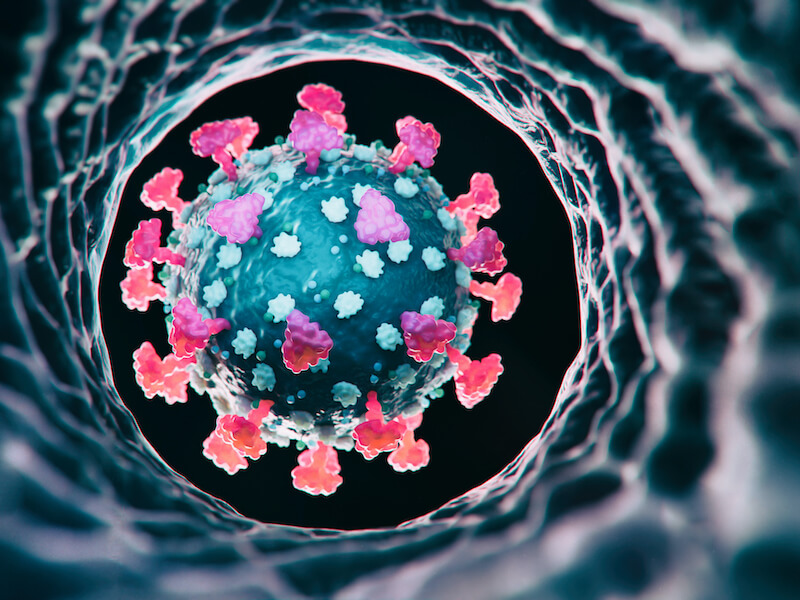
If you’re exposed to a lot of loud sound and don’t wear ear protection, you might experience hearing loss down the road. Hearing loss may be in your future, for example, if you work on a loud factory floor without hearing protection. These hearing loss causes are fairly common. But there’s a new fighter in the ring, and you can probably guess who it is: Covid-19.
People all around the world have been ravaged by all of the numerous symptoms and side-effects of Covid-19, and that may include problems with hearing.
Maybe? Probably? Okay, Covid-19 is still a very new virus. And scientists are learning something new about it every day. There is some research which suggests that hearing loss may be a potential side effect of Covid-19, but more research still needs to be done to back this up. So let’s take a look at where things stand currently.
Does the Covid vaccine produce hearing loss?
So, let’s get this out of the way right off the bat: There’s absolutely no proof that the Covid-19 vaccine causes hearing loss. That’s true for all of the currently approved and available vaccines, from Pfizer and Moderna to Novovax. Vaccines don’t impact your ears, they just don’t work like that. It would be like eating a nice healthy salad and then claiming that it was the cause of your diabetes.
This applies to the brand new mRNA vaccines and the more established ones. Which means that the benefits of these vaccines still greatly surpass the risks for the majority of people. Talk with your doctor and seek reputable information if you have any questions about vaccines.
Let’s discuss hearing loss now that we’ve cleared that up.
So, how does Covid trigger hearing loss?
But, how does this cause hearing loss? Specifically, how does this cause sensorineural hearing loss, the type of hearing loss that results from damage to your auditory system and is typically irreversible?
Scientists have a couple of hypotheses. These theories, we should point out, aren’t always mutually exclusive. They can both be relevant!
Theory #1: inflammation
The first compelling theory among researchers is that Covid-19 causes significant inflammation in the upper respiratory tract, and that this inflammation can ultimately impact your ears. Your ears, nose, and mouth are all connected, after all. This might result in hearing loss in a couple of ways:
- Fluid buildup: Fluid has a more difficult time draining because inflammation has made the drainage pathways more narrow. It becomes harder and harder to hear as this fluid continues to build up. In these instances, your hearing will usually return to normal once your symptoms subside (this would not be an instance of sensorineural hearing loss).
- Cell damage: Remember that viruses use your body’s own cells to replicate. The outcome is damage. And because Covid affects your vascular system, this can in some cases cause damage to the vascular connections between your brain and your ears. This would be considered sensorineural hearing loss, and would probably be effectively permanent.
When hearing loss is a result of a buildup due to inflammation, steroids can sometimes be helpful. There’s still an ongoing effort by scientists to discover a way to prevent sensorineural hearing loss. How much protection from this type of hearing loss the vaccines will provide is unknown, but it’s better than no protection.
Theory #2: Long Covid
The second theory is a bit murkier when it comes to the cause and effect, but more corroborated in terms of patients’ experience. There’s something called Long Covid which you, by now, have probably heard about.
Long Covid is a condition in which people experience symptoms from Covid well after the actual virus has left their system. Often, a debilitating bout of long Covid that drags out for months, or longer, after having Covid itself, is experienced. There’s no doubt, Long Covid is real, but scientists are still unsure why.
In February of 2021, researchers published a systematic review that looked at data about long-term auditory difficulties resulting from Covid-19. Here’s what the review discovered:
- 7.6% of people reported hearing loss after getting Covid.
- Tinnitus was experienced by 14.8%
- Vertigo was reported by7.2% of people
There’s certainly a connection between Long Covid and hearing problems, but it’s unknown if there’s a direct cause and effect association. Long covid seems to trigger a broad constellation of symptoms, including those that affect your hearing.
Anecdote or evidence?
When someone talks about how they got Covid and had hearing issues ever since, that’s an anecdote. It’s one individual narrative. When scientists are attempting to develop a treatment plan, these personal accounts, while they are part of everyday life for the individuals, aren’t enough for scientists to go on. That’s why research is so critical.
As researchers obtain more evidence that these hearing complications are relatively prevalent, they’re able to generate a clearer image of the risks involving Covid-19.
We certainly need to learn more. Research is ongoing, which means the connection between Covid-19 and hearing loss isn’t actually proven or unproven. It’s important to get help as soon as possible regardless of how your hearing loss developed. So if you suspect your hearing isn’t what it once was, call us to schedule an appointment.
References
https://www.frontiersin.org/articles/10.3389/fneur.2022.883749/full
https://www.tandfonline.com/doi/abs/10.1080/14992027.2021.1896793?journalCode=iija20&